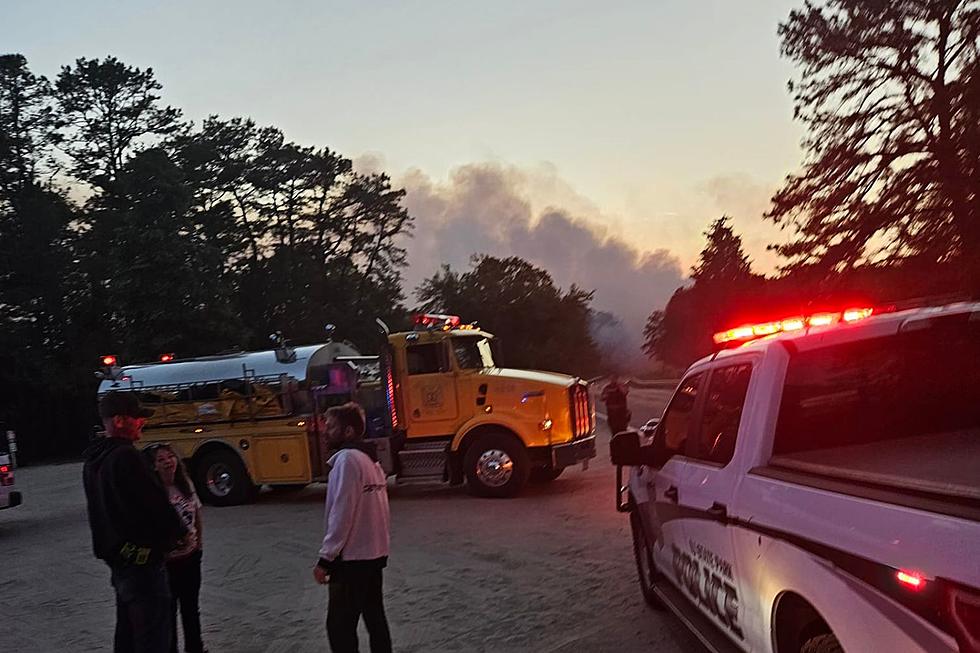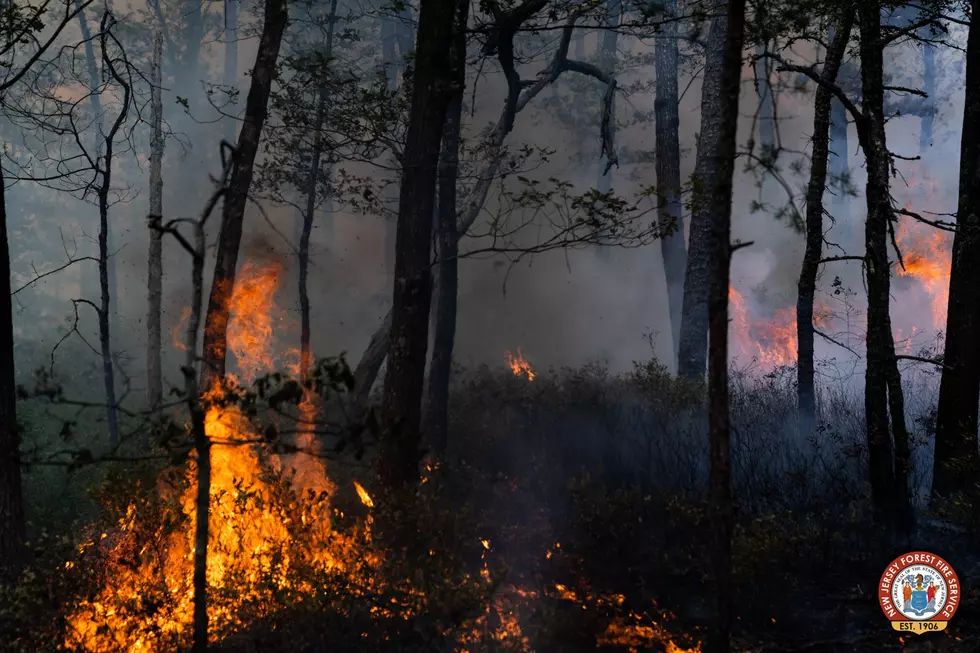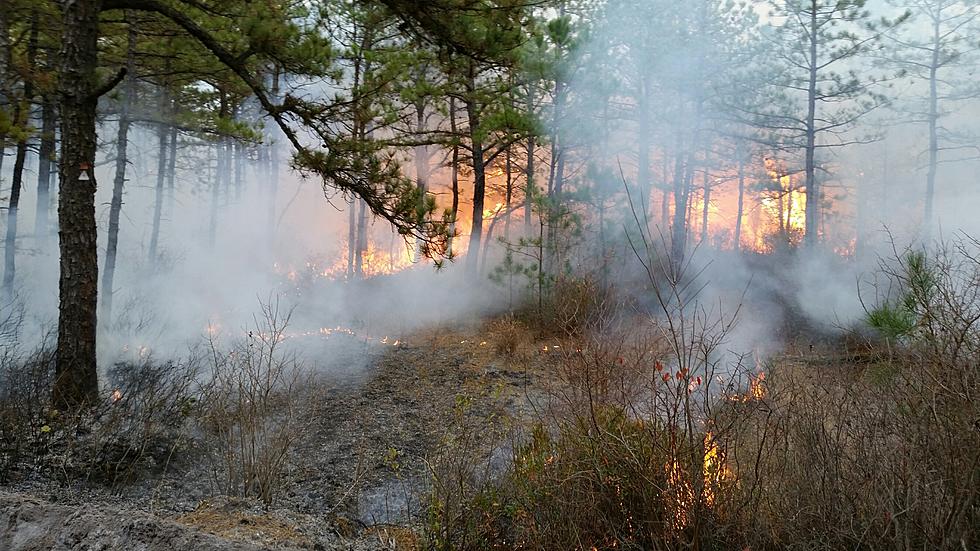
NJ wildfire season will ramp down soon but manmade dangers remain
Peak wildfire season in New Jersey should be winding down by the middle of May, but state fire officials are reminding residents that as coronavirus-related restrictions begin to be lifted and more people finally venture outside, it is people who are responsible for 99% of all fire starts.
Rarely does a fire spark from a lightning strike, but it does happen, most recently in Downe Township on April 9.
So far this season, 417 fire events have consumed at least 2,000 acres of land across the Garden State. That may seem like an excessive number of fires, but N.J. Forest Fire Service Chief Greg McLaughlin, the state's fire warden, likened it to a couple of winter flurries qualifying as a "snow event."
"Approximately 75% are under 5 acres, so (not) reaching that, what we call large conflagration, or in this case, a blockbuster," McLaughlin said.
The fire warden said this year has been full of "starts and stops:" Busy fire action days caused by wind, followed by cool-downs, higher humidity and rain.
The end of the season should be accelerated by what McLaughlin called the full "green-up" of hardwood trees, which happens gradually from the southern part of the state through the north, but because of the predominance of more sandy soils in South Jersey, increased danger can linger.
"It can rain overnight, or rain in the early morning hours, and by the afternoon things can be dry enough and conducive to fire starts and fire spread," he said. "Although it's not the traditional time for us here, if we go into a drought season, for example, we could have fires in the summertime and beyond May as well."
The Forest Fire Service deploys what it calls a "direct attack suppression method" to get to fires as quickly as possible and battle them on the ground and in the air. Sometimes they may literally fight fire with fire, doing "prescribed burns" to torch a predicted fuel source so that fires will not spread or will be otherwise contained.
Quite often, the remote locations of these fires can pose a serious challenge, as can roadside operations; McLaughlin even cited one such case in which a New Jersey firefighter was killed, and urged motorists to always use caution around an active scene.
Going out of their cars and into the woods, New Jerseyans should also treat anything flammable they leave in the forest with the utmost care.
"Whether it's a campfire or disposal of your wood stove ashes or your charcoal grill, those things can remain hot for a long time after when people may think the fire is out," McLaughlin said. He said ashes must be completely cold to the touch to ensure safety.
An intentionally-set fire, such as one in South Jersey in March 2019, can result in thousands of dollars in fines levied by the state.
Patrick Lavery is New Jersey 101.5's afternoon news anchor. Follow him on Twitter @plavery1015 or email patrick.lavery@townsquaremedia.com.
A look inside NJ Weedman's Joint
More From New Jersey 101.5 FM









